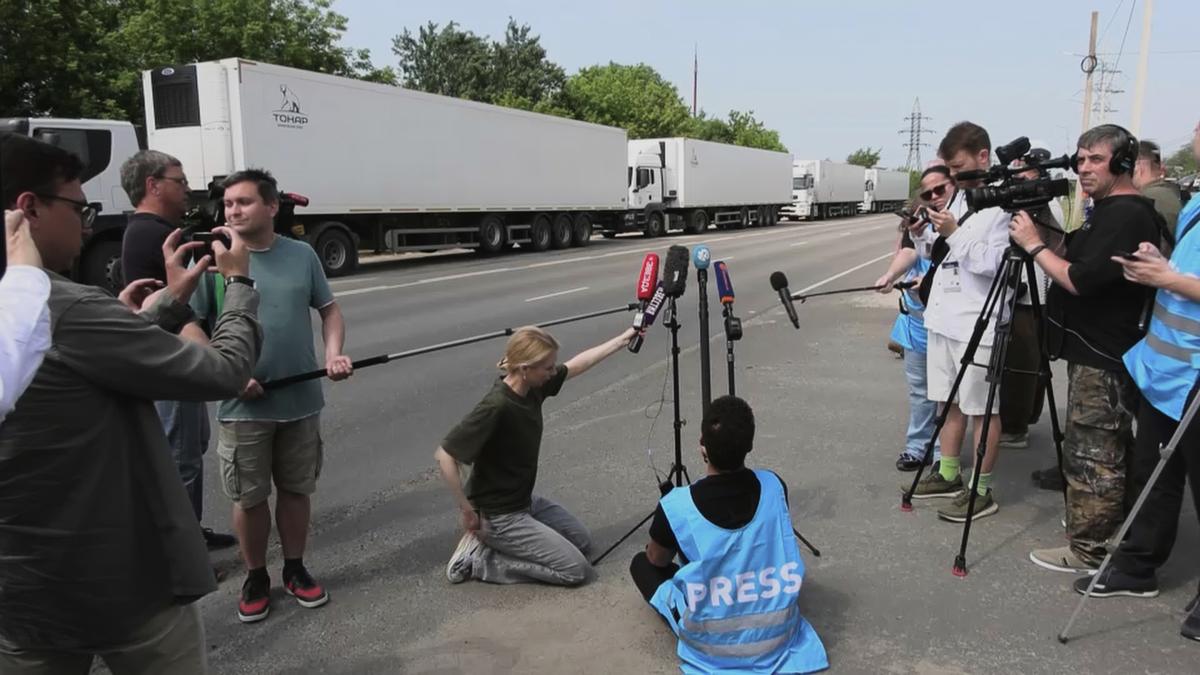 |
|
The ongoing conflict between Russia and Ukraine continues to be marked by accusations and counter-accusations, as exemplified by the dispute over the planned exchange of the bodies of fallen soldiers. The article highlights the deep-seated mistrust and communication breakdowns that plague the relationship between the two nations. Russia claims that Ukraine is delaying the exchange, while Ukraine accuses Russia of manipulation and providing inaccurate information. This particular instance underscores the human cost of war, even in the handling of the deceased, and how even ostensibly humanitarian efforts are susceptible to the broader political tensions. The exchange, which was agreed upon during talks in Istanbul, has become another point of contention, with each side blaming the other for its potential failure. The Russian side claims to have delivered the first batch of bodies to the exchange site and is awaiting confirmation from Ukraine. Ukraine, however, states that no date has been set and accuses Russia of providing incorrect lists of prisoners of war. The inability to reconcile these conflicting claims reflects the pervasive lack of trust and the difficulty in reaching any agreement, even on matters that should transcend the immediate conflict. This situation is further complicated by ongoing military actions, including aerial strikes and drone attacks, which serve to exacerbate the already strained relations and make any form of cooperation increasingly difficult. The fact that an agreement reached during direct talks has become mired in mutual accusations suggests that even with direct engagement, significant obstacles remain in the path towards de-escalation and resolution. The international community watches with increasing concern as these developments unfold, recognizing the potential for further escalation and the urgent need for a sustainable solution to the conflict. The immediate impact of this particular exchange breakdown is the continued suffering of families who are waiting to receive the remains of their loved ones, emphasizing the profound human cost of the conflict and the importance of prioritizing humanitarian efforts, even amidst the ongoing hostilities.
The escalation of the conflict is further demonstrated by the reported strikes and drone attacks in various regions. In eastern Ukraine, Russian aerial strikes on the Kharkiv region resulted in casualties, adding to the already devastating human toll of the war. These attacks followed previous strikes on the regional capital, highlighting the ongoing vulnerability of civilian populations and infrastructure. The intensity of these attacks is evidenced by the high number of casualties and the extensive damage inflicted on the targeted areas. The use of exploding drones and missiles by Russia underscores the sophisticated nature of the weaponry being employed and the potential for widespread destruction. Ukraine's air force reports the downing and jamming of numerous drones, indicating the defensive measures being taken to counter the attacks. Simultaneously, Russia claims to have shot down a significant number of Ukrainian drones, including those near the capital, suggesting a reciprocal exchange of attacks. The drone attack on a chemical plant in the Tula region of Russia, attributed to Ukraine, further extends the geographical scope of the conflict and demonstrates the increasing vulnerability of civilian infrastructure on both sides. This incident also raises concerns about the potential for environmental damage and the long-term consequences of such attacks. The temporary suspension of flights at major international airports serving Moscow due to Ukrainian drone attacks highlights the direct impact of the conflict on civilian life and the potential for disruption to international travel and commerce. The frequency of these attacks and the measures taken to mitigate their impact underscore the ongoing security challenges faced by both countries. These developments collectively paint a picture of a conflict that is intensifying and expanding, with no immediate signs of de-escalation. The use of advanced weaponry, the targeting of civilian areas, and the disruption of daily life all contribute to a growing sense of crisis and the urgent need for a negotiated resolution.
The constant stream of conflicting information emanating from both sides further complicates the situation and hinders efforts to assess the true state of affairs. The accusations and counter-accusations surrounding the exchange of bodies, the reporting of strikes and drone attacks, and the claims of military successes and failures all contribute to a climate of uncertainty and distrust. This “fog of war” makes it difficult to discern the facts on the ground and to evaluate the progress of the conflict. The reliance on state media and official sources further exacerbates this problem, as each side presents its own narrative and attempts to control the flow of information. Independent verification of claims is often impossible, making it difficult to hold either side accountable for their actions. The use of propaganda and disinformation as tools of warfare further muddies the waters and undermines efforts to promote dialogue and understanding. In this environment of heightened tension and mistrust, it is essential to approach all information with a critical eye and to seek out multiple sources of verification. The international community has a crucial role to play in monitoring the situation, investigating alleged violations of international law, and promoting transparency and accountability. Only through a concerted effort to establish the truth can we hope to move towards a resolution of the conflict and to prevent further suffering and loss of life. The breakdown of the exchange agreement and the continued hostilities underscore the urgent need for a renewed commitment to diplomacy and dialogue. Without a genuine effort to address the underlying issues and to build trust between the parties, the conflict is likely to continue to escalate, with devastating consequences for both sides. The human cost of the war is already immense, and it is imperative that all efforts be made to find a peaceful and sustainable solution.
Source: Russia continues to accuse Ukraine of delaying planned exchange of dead fighters
